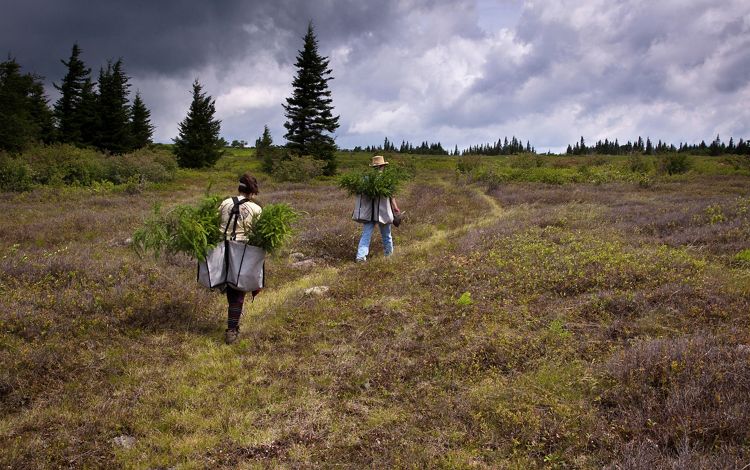- Sep 3, 2025
- 5 min read

by the Rev. Leslie Scoopmire
When Mother Leslie and her sister were little, our parents would sometimes tell us stories. Our dad, who was part Cherokee, liked to tell us this one, and I wanted to share it with you today. It's a Cherokee story called "Why Possum's Tail Is Bare."
You may not know it, but long ago animals used to love to get together and hold big community meetings called councils, where they would talk about how to take care of each other, how to prepare for winter, and other sorts of important business for the community of creatures. Afterward, they would feast and dance and sing together. It was a way of being neighborly, and sharing good times and good food.
Now all the animals knew each other, and knew the tendencies that each animal had. For instance, the fox was known for being clever. The owl was known for being wise. The horse was known for being fast. The eagle was known for its ability to fly high and to see things from long distances. And rabbit was known as a trickster, as a player of practical jokes. And yet because he was so swift, he was often also given the task of being a messenger in the animal community.
So the animals were getting ready to have another one of their annual council meetings, followed by a dance and dinner. This was going to be a night of talking about issues the community needed to take care of, gathering help for those in need, and feasting and singing and music and dancing around a wonderful warm fire.
Rabbit was sent out to spread the news of the dance to all the different animals living in the forest. And as he approached Possum's house, he thought about Possum's terrible pride, and his repeated tendency to brag. You see, back then, Possum had a beautiful, luxurious, silky tail, one he took great pride in. He kept it neat and clean, always brushed it out so that it shone like glass. So Rabbit decided to play a trick on Possum.
Sure enough, Rabbit found Possum down by the pond, combing the hair on his tail and looking at its reflection in the water, making sure his tail looked its finest.
"Hello, Possum!" said Rabbit, interrupting the combing, and Possum jumped with a start." Are you coming to tomorrow night's council? It wouldn't be a real meeting without you!"
"Well, I don't know," said Possum. "I had planned to wash my tail tomorrow, and you know it takes several hours for me to dry it properly."
Rabbit said, "Ohh come on! You and your tail must be there!"
The Possum considered. "Hmm. Well, I guess I can come, as long as you give me a place of honor so that everyone can see my magnificent tail."
"Oh, absolutely!" said Rabbit, "And, what's more, just to make sure your tail is at its finest, I will send over someone to comb it and dress it so that it'll look especially amazing!" Possum readily agreed to come, and away Rabbit hopped.
Rabbit's next stop was to Cricket's house. Cricket was known to be an expert hair cutter-- so good that the Native American people called him "the Barber." So Rabbit asked Cricket to go to Possum's house the next evening, just before the council began. Then Rabbit bent down and whispered in Cricket's ears special instructions, and then he hopped off, laughing as he went.
The next evening, after sundown, Cricket appeared at Possum's house. He told Possum that he had come to prepare his beautiful tail for the council meeting and dance, so that it would look its very best. Possum happily put himself at Cricket's disposal, knowing Cricket's reputation as a wonderful barber and hairdresser.
Cricket urged Possum to lay back and close his eyes and let Cricket do the work. Soon Cricket tied a red ribbon way up around the top of the tail, telling Possum that the ribbon was there in order to be able to brush the tail without it pulling too much and hurting as he worked. "This ribbbon, which is itself beautiful, will help keep your tail neat and tidy until the meeting," Cricket assured Possum, and Possum happily lay back and closed his eyes, imagining how fine this night was going to be. That ribbon why Possum couldn't feel Cricket clipping off the hair close to the roots, working his way round and round and down and down the tail until it was as bare and wriggly as a long, pink, worm.

Cricket finished just as night had gotten very dark, just in time for the council meeting to start, and so with only minutes to spare, away they both ran to the council grounds.
When Possum arrived, he found the place of honor saved for him, just as Rabbit had promised. The fire was not yet fully lit, because the wood was always saved for the dance after the meeting. The light was just bright enough to see everyone's faces. The animals got finished with their business rather quickly. Then the fire was fed and the flames shot up, and the dancing began.
When it was Possum's turned to dance, he loosened the string from his tail and stepped into the middle of the assembly. The drummers, who were the woodpeckers, began to drum, and Possum began to dance and sing and spin, lifting his face up to the stars overhead. "See my beautiful tail!" he cried and everybody shouted. He danced around the circle and sang again "See how beautiful the fur is and how beautiful the colour is!" and everybody shouted more. Even more in ecstasy, he exclaimed "See it sweep the ground! See it wave in the breeze as I dance!" And the animals shouted loudest of all.
Possum was delighted. So he spun around, and sang even louder stepping up close to the fire, "Look at my beautiful tail!" And suddenly possum realized that the animals weren't shouting, but laughing. He stopped dancing and looked down into the firelight at his tail.
Possum saw that there was not a hair left on it. Instead it was as bare and naked as a lizard, or a snake, or even worse a worm! A long, pink, wriggly worm! Possum was so surprised and astonished that he could not say a word.

Instead, not knowing what to do, he rolled over helpless on the ground and grinned, as Possum does to this day whenever he is taken by surprise. And to this very day, the Possum's is a much more humble creature, and helpful, eating all kind of annoying insects like ticks. But his tail is still bare.
Citation-- a Cherokee Folktale told to Mother Leslie by her father, Cornell Barnes. An original version can be found in History, Myths, and Sacred Formulas of the Cherokees, by James M. Mooney.


